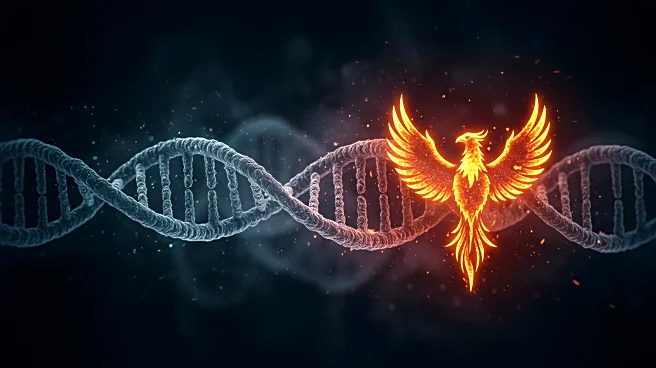What's Happening?
Colossal Biosciences has appointed Andrew Pask, Ph.D., as its Chief Biology Officer, marking a significant step in the company's de-extinction initiatives. Pask, known for his expertise in developmental genetics and conservation technologies, will oversee Colossal Australia and global embryology projects. His role includes managing the thylacine de-extinction project and other conservation efforts. This appointment is part of Colossal's expansion in Oceania, leveraging Australia's biodiversity for innovative research. Pask's leadership is expected to enhance Colossal's scientific strategies and contribute to the preservation of endangered species.
Why It's Important?
The appointment of Andrew Pask is crucial for advancing Colossal's mission to restore extinct species and protect endangered ones. His expertise in marsupial biology and de-extinction technologies positions Colossal to make significant strides in biodiversity conservation. This development highlights the growing importance of biotechnology in addressing ecological challenges. By focusing on Australia's unique fauna, Colossal aims to innovate in species restoration, potentially influencing global conservation practices. The partnership with the University of Melbourne further strengthens Colossal's research capabilities, promising impactful scientific contributions.
What's Next?
Colossal Biosciences plans to expand its research initiatives in Australia, focusing on native species conservation and de-extinction projects. Pask's leadership will guide the integration of advanced embryology techniques and stem cell biology into these efforts. The company aims to achieve breakthroughs in species restoration, with potential applications in global biodiversity conservation. Stakeholders, including environmental groups and scientific communities, are likely to monitor Colossal's progress closely, anticipating advancements in de-extinction science and its implications for ecological balance.










